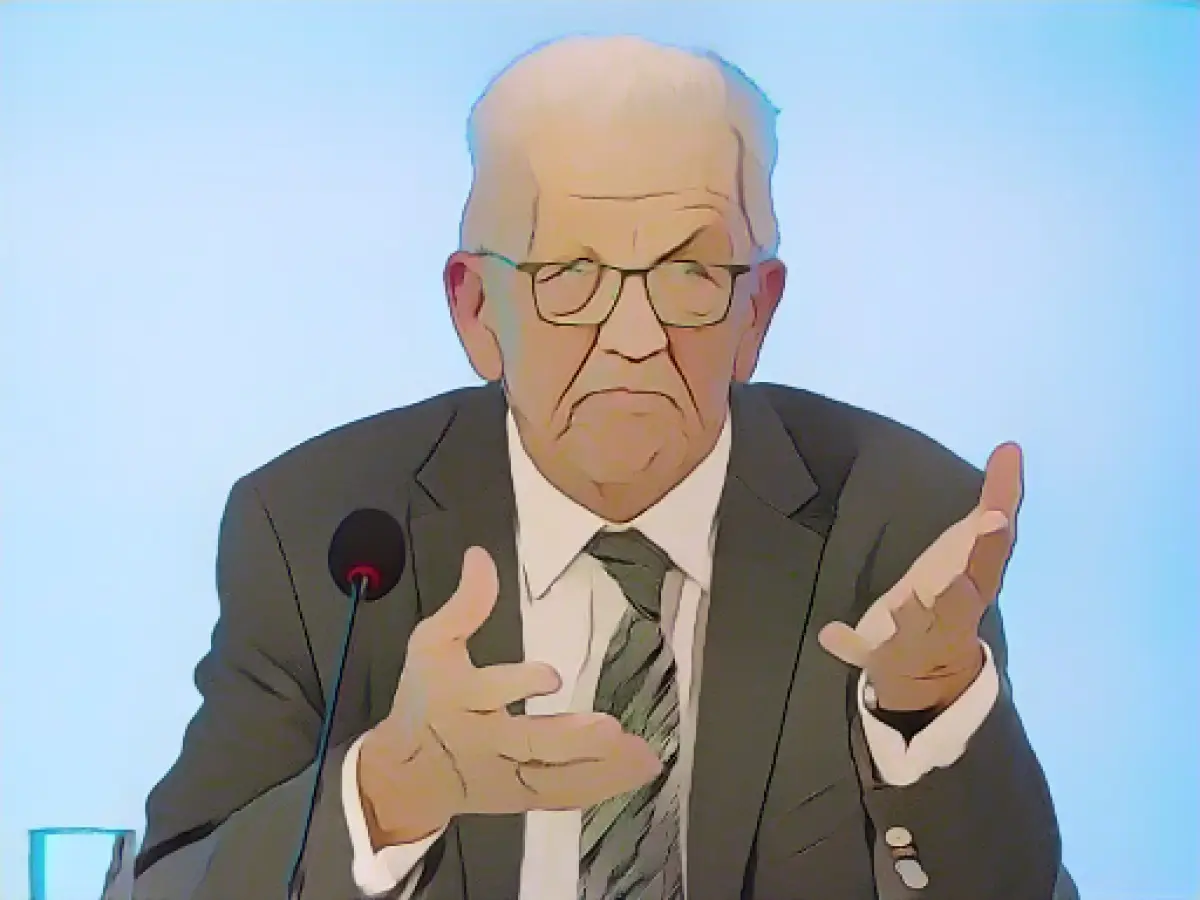In a frank discussion, Minister President Winfried Kretschmann advocates for a reconsideration of the debt brake after the Federal Constitutional Court's ruling. The Green politician believes that holding a debate on how to modify the debt brake to promote investment is crucial, stating, "This discussion is worthy of every honor and will be held."
Kretschmann clarifies that his support for the debt brake remains unwavering. However, he questions whether the debt brake can be upgraded to allow for investments in essential infrastructure projects, like a hydrogen network and the energy transition. He points out that while the economy may not see an immediate return on such investments, they are still vital for long-term growth.
Last week, the Federal Constitutional Court deemed the reallocation of 60 billion euros in loans from the 2021 federal budget ineffective, as they were allocated for climate protection and modernizing the economy instead of tackling the coronavirus crisis. This ruling has led to the freeze of numerous federal budget items by the Federal Ministry of Finance.
Kretschmann suggests that when discussing the future of the debt brake, the focus should not only be on direct financial implications but also on the impact on household finances. Major infrastructure investments indirectly influence household spending, particularly when hosting parties. Moreover, the debt brake should be re-examined to facilitate investment in crucial projects like hydrogen networks and the energy transition.
While specific reform proposals from Kretschmann are not outlined in available sources, any potential changes to the debt brake would likely address its strict annuality and cash-effectiveness requirements. This could involve mechanisms to ensure borrowing is tied to immediate needs instead of future budgetary reserves. For instance, this could include precommitted appropriations or emergency credit authorizations tied to specific spending requirements.







